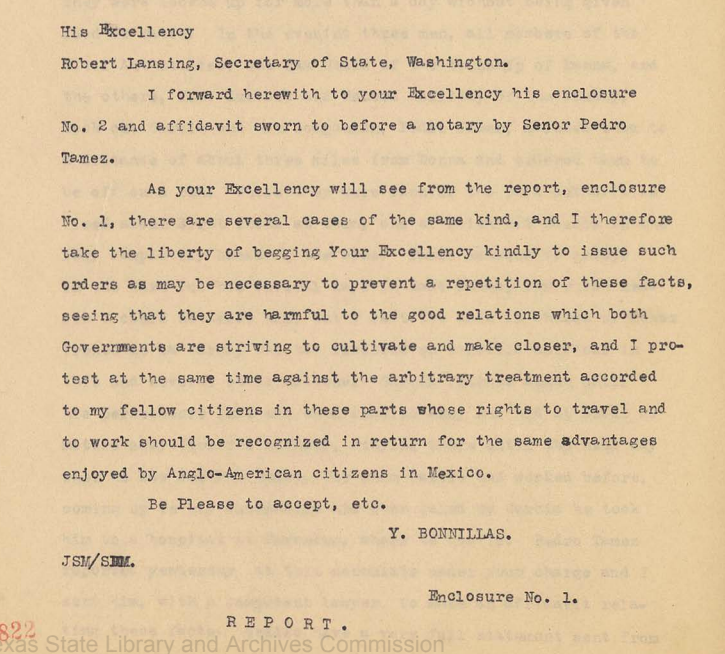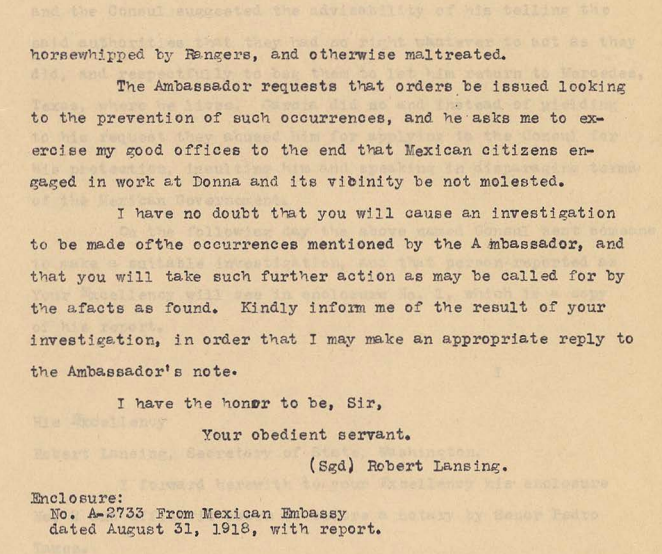#OTD in 1919, the Mexican Ambassador to the United Stated, Ignacio Bonillas, wrote to U.S. Secretary of State Robert Lansing regarding the abuse of Mexican Americans by Texas Rangers.

In August of 1918, outside of Donna, Texas Jose Hernandez reported being flogged and horsewhipped by Texas Rangers, who tortured him to obtain a confession for the theft of a burro.
He testified that Texas Rangers took him and his son to a grove of trees, where they threatened to hang both of them if he didn’t confess to the theft.
He refused, leading the Rangers to tie a noose around his neck and pull it tight over an overhead branch until Hernandez was barely able to stand.
Additionally, Hernandez claimed, they flogged him until he fell unconscious, all while forcing his young son to watch this sadistic torture.
This particular act of violence, in addition to others led Bonillas to write to Lansing on August 31, 1919.



J.T. Canales included this testimony in his 1919 investigation of the Texas Rangers. Following Hernandez’ testimony, a local sheriff confessed to the flogging, claiming Texas Rangers played no part in the abuse. Canales contested the validity of this confession, suspecting a coverup.
Canales claimed that Captain Hanson was attempting to shield the Ranger force from scrutiny and blame by coercing or influencing the sheriff [name]’s to confess.
He provided evidence, via a letter from Hanson to General James A. Harley, fervently denying any abuse of Mexicans by Rangers, including the flogging of Hernandez.
However, Lansing believed the incident needed immediate and thorough investigation, and even went to the effort to translate Bonillas’ letter before passing it on.


The attention paid by both the Mexican Ambassador and the U.S. Secretary of State to the violent behavior of Texas Rangers, begs the question as to why Lansing’s investigation never began.
The inclusion of these events in Canales’ testimony brought to light more of the heinous crimes of Hanson and contributed to Canales’ larger point about how the Rangers acted violently and outside the law during the 1910s.
Information for this thread comes from @MonicaMnzMtz‘s The Injustice Never Leaves You, and volume 2 of the 1919 Ranger Investigation.
